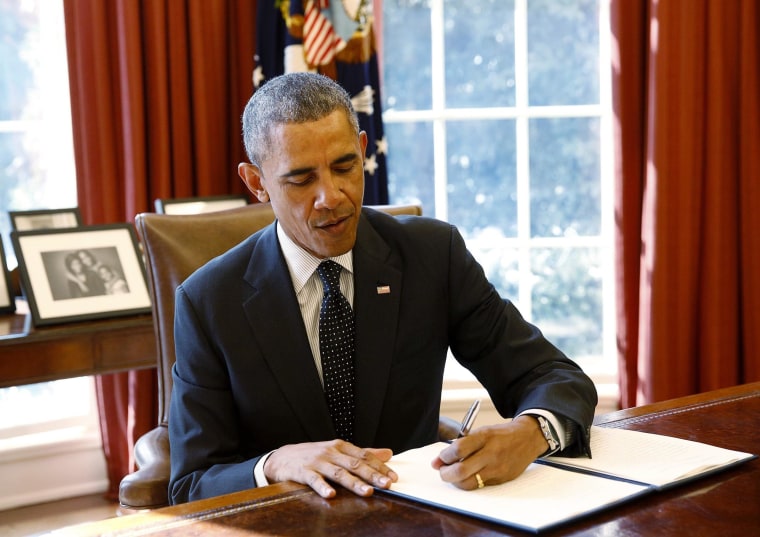President Barack Obama passed George Washington on Tuesday in the number of times he has exercised an important presidential power: the veto.
Obama’s veto of the Keystone XL pipeline marked just the third time he’s terminated legislation passed by Congress since taking office in 2009. He has so far wielded his veto power notably less times than other modern-day presidents, but that is likely to change soon.
“The biggest driver of the number of vetoes is divided government,” said Kenneth R. Mayer, a political science professor at the University of Wisconsin-Madison who studies executive power.
That means Republican control of the House and Senate could put Obama on pace to catch up with the 12 vetoes George W. Bush used during his time in office. Bush issued 11 of his 12 vetoes in the last two years of his presidency, after the wave election of 2006 that put Democrats in control of both the House and Senate.
Obama is unlikely to match Bill Clinton’s total of 37, but Clinton reached that number mostly because he dealt with a Republican-controlled House and Senate for six years of his presidency. Clinton did not veto any legislation in his first two years in office. Then the “Contract With America” ushered in the GOP mega-wave election of 1994.
Another reason why Obama’s vetoes could dramatically spike before he leaves office: a contentious presidential campaign in 2016. Republicans in complete control of Congress may pass bills just to force the president to squash them. Though Obama is not on the ballot, his former Secretary of State Hillary Clinton likely will be and opponents will try to tie them together when advantageous.
“We could see a dynamic where Republicans pass legislation they know the president will veto to make a point,” Mayer said.
History also tells us something else when it comes to vetoes -- they are really hard to override. Of the 2,564 vetoes that have been issued since George Washington, Congress has gotten the necessary two-thirds vote to overcome a veto just 110 times.
That puts GOP chances of approving Keystone XL after Obama’s veto at less than 5 percent, historically speaking.
